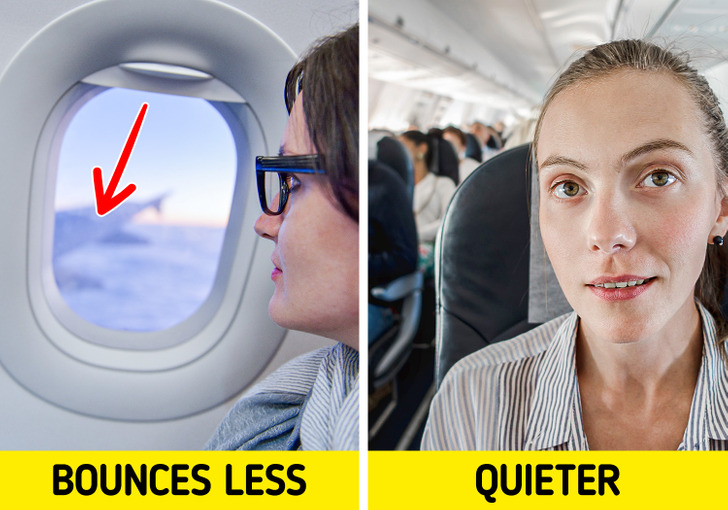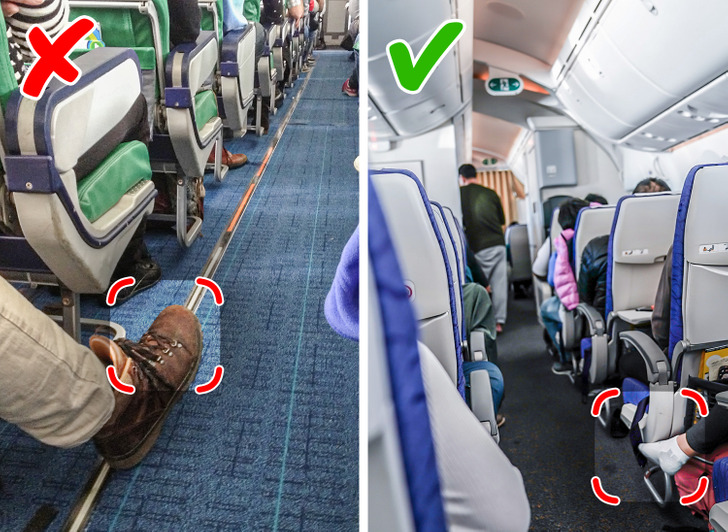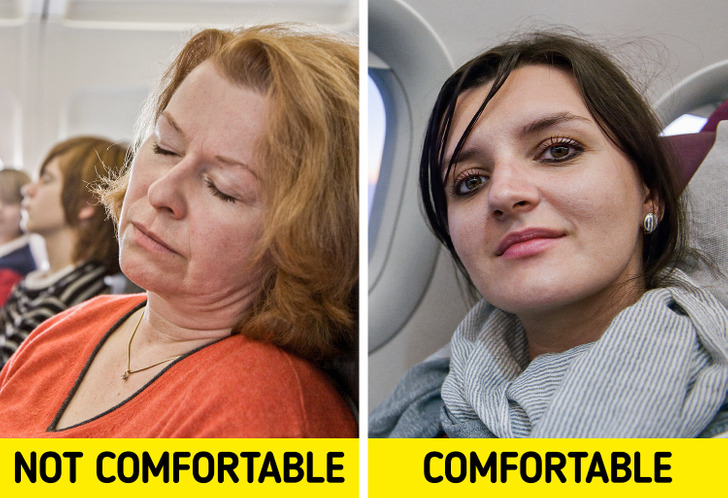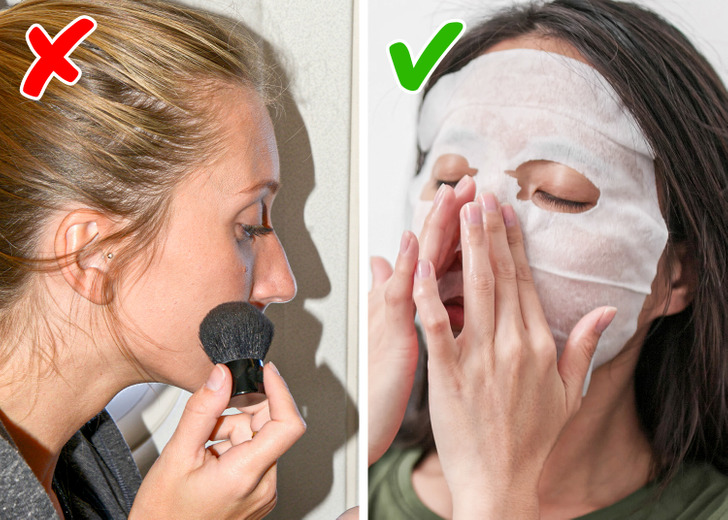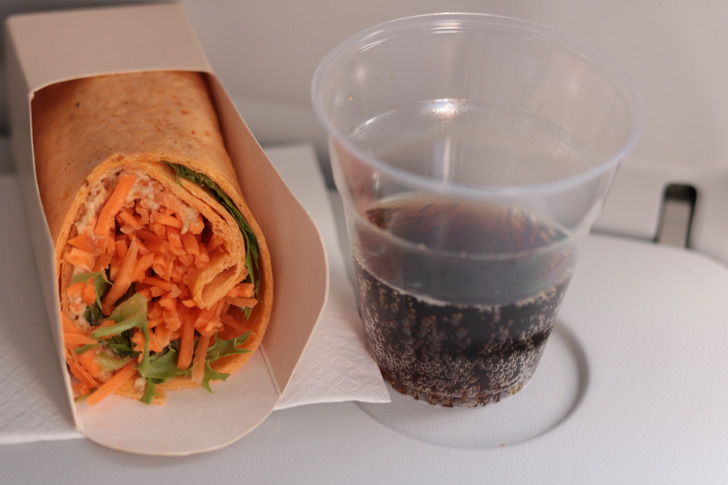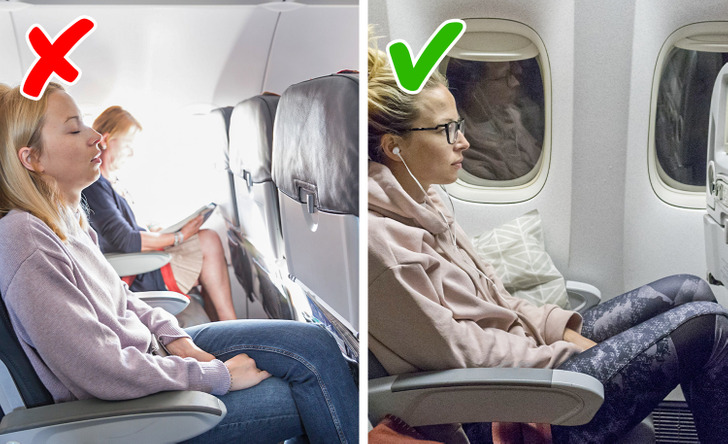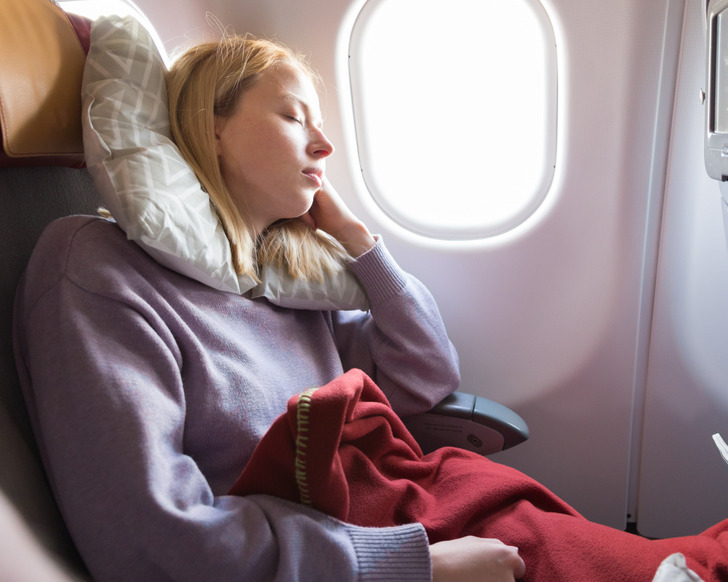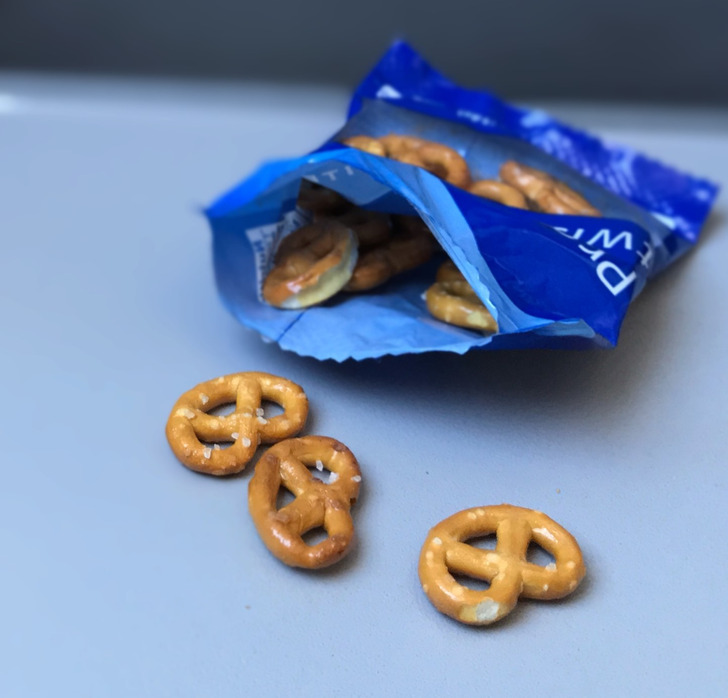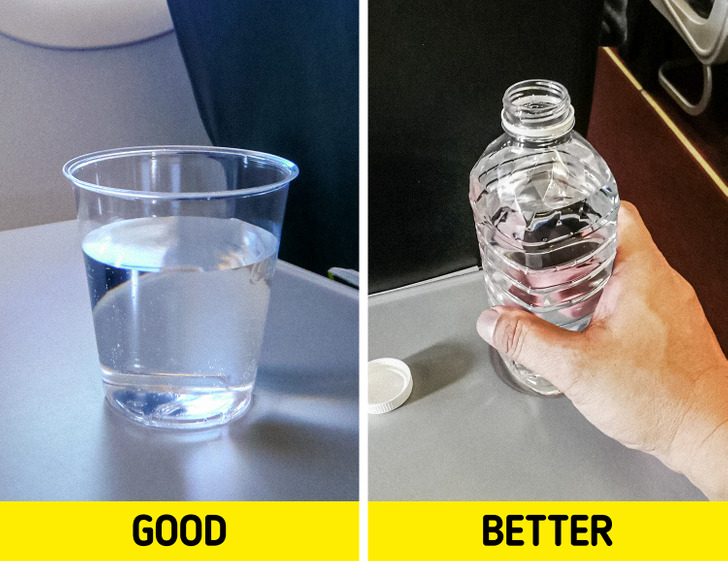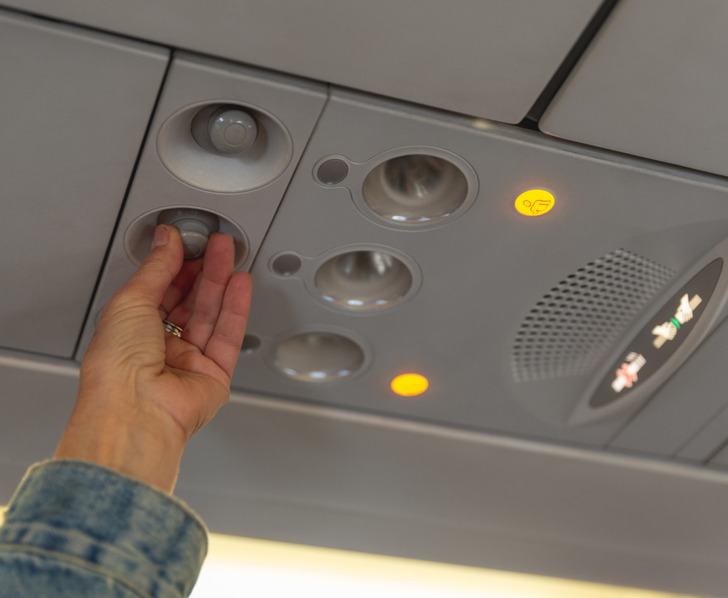13 Thin Nuances That You Better Know Before Boarding the Airplane

Unsuccessful efforts to find a comfortable pose for sleeping, screaming kids, stomach issues due to the food consumed onboard — these are just some of the difficulties we face during flights. All these result in us feeling devastated after landing and having a lack of energy to enjoy the new place we are at.
CHEERY is going to tell you how to stop suffering from discomfort during flights and how to make your time onboard pleasant. The bonus part will show you a couple of exercises you can use to warm up your muscles and relax as the plane makes its way through the clouds.
1. Choose your seat wisely.
One should approach the task of choosing a seat on a plane strategically: the air in front of the aircraft is fresher and the plane bounces less in these seats and the seats over the wings. It is best not to opt for the seats by the engines, the toilets, or the kitchen. The closer you are to the bow of the aircraft, the less you will be disturbed by engine noise. The seats near the aisle are a few decibels quieter than the ones near the windows.
2. Find a comfortable sleeping pose.
Experienced travelers recommend reclining the back of the seat as much as possible and opting for a window seat for a more comfortable rest. However, sleep experts say that the best pose for sleeping well is bending forward over the tray. One also shouldn’t bend over the wall near the window. As the survey shows, you’ll unlikely sleep well in this pose.
3. Eat or drink something cold before sleeping.
Before sleeping, our body temperature decreases, because the internal systems of the body begin to work less intensively than during the time you are wide awake. This mechanism can be used during flight to convince the body that it is time to get some rest.
4. Carry socks with you.
Experienced travelers take a couple of pairs of socks with them onboard. It’s often cold onboard planes and keeping your shoes on is not very comfortable either. In this case, another pair of warmer socks will help you immensely. The main thing to keep in mind is to put your shoes back on when you are going to the lavatory or when walking around the plane to warm up your muscles.
Compression socks can become a good alternative to socks. They help improve blood circulation and decrease the risk of swelling and thrombosis.
5. Don’t leave your neck open.
An open neck is one of the reasons why you might feel cold and uncomfortable onboard. If you cover it with a scarf or a cardigan, your neck will feel warmer and it will be easier for you to relax.
6. Place your travel pillow backward.
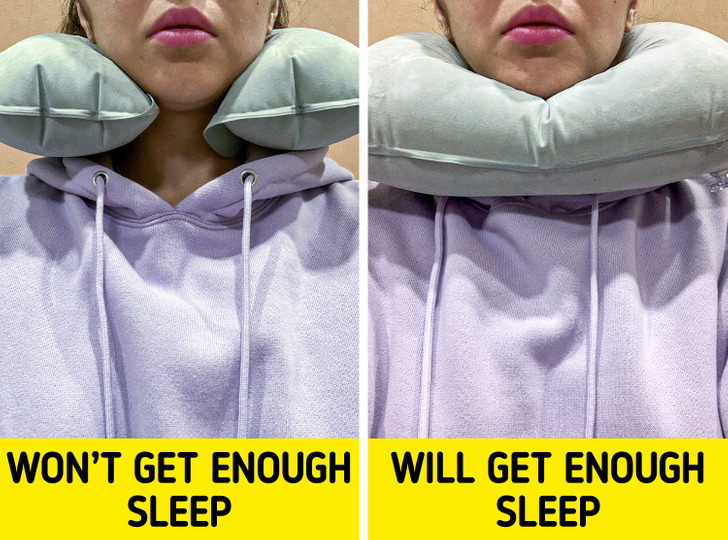
An experienced traveler shared a life hack that helps him sleep well onboard planes. All you need to do is use a travel pillow backward. In this case, the pillow will serve as a support for your chin and your head won’t bend forward. At the same time, the back of your head also has support — the seat itself.
7. Don’t use makeup and make sure to moisturize your skin.
It’s better to leave bright lipstick, blush, and mascara outside the plane. The air inside the plane is dry and it’s recommended to apply moisturizing cream to the face before boarding instead of foundation. It would be best if the moisturizer had SPF and you could also carry a serum, just in case you feel really dehydrated.
In order to take care of your skin even more, you can seek help from cloth masks. As a rule, they contain hyaluronic acid and other moisturizing ingredients. The main thing to keep in mind is that you should opt for the masks without a strong smell, so as not to inconvenience your fellow travelers.
8. You better avoid soda drinks before and during the flight.
Both flight attendants and nutritionists consider that such kinds of drinks can be a bad choice as they are not great for passengers’ tummies. A carbonated beverage in flight can exacerbate the increase in intestinal gas, which typically expands up to 30% due to the decrease in barometric pressure. As the result, these drinks can cause nausea.
9. Don’t cross your legs.
10. Grab something soft from home.
A cozy “home-like” atmosphere will help you fight insomnia on board. To create this, grab something soft from your bedroom (like a blanket) when going to the airport. Even something small, like a pillowcase, will smell like your home and your brain will associate this familiar smell with going to sleep.
You can also try to reproduce your everyday routine on a long-haul night flight: change your clothes for comfortable jammies, brush your teeth, read — all in all, do all the things that you normally do before hitting the hay.
11. Salty snacks can be a bad idea.
Almost all airports have lots of places that offer fast food. These meals are rich in sodium and saturated fats, that aren’t easy to digest at normal altitudes, and when you add 30,000 feet into the equation it’s much harder. The same rule applies to food, which you eat on board. Although salt is one of the few flavors you can still detect at high altitudes, such snacks will dehydrate you and leave you bloated.
The magnesium and potassium in bananas help regulate blood pressure and promote sleep. Therefore, if you find it difficult to fall asleep on the plane, you can eat a couple of bananas.
12. Drink only from sealed containers.
An experienced flight attendant shared on social media that the reservoirs, where the water is stored onboard aircraft, are not washed as regularly as you’d expect. That’s why she recommends only consuming drinks from sealed containers: water from bottles or juices. She also advises abstaining from drinking tea and coffee that are prepared from the water in the reservoirs.
13. Don’t turn off the AC.
Air conditioners on airplanes serve as barriers — they “blow-off” bacteria, forcing them to settle on the floor faster, and preventing them from getting onto our mucous membranes. Therefore, it is advisable to not turn off the individual ventilation system, maintaining a medium or strong airflow throughout the entire flight.
Due to the low humidity onboard our mucous membranes dry out, making us more susceptible to disease. By turning off the air conditioner, we run the risk of catching an airborne infection.
Bonus: How to warm up your muscles on a flight
- You can use the toilet in order to restore blood circulation. Sit on the closed seat and stretch your legs up the wall. Stay in this position for 10 minutes.
- In order to relax during the flight, try doing the following exercise: strain all the muscles of your body, keep the strain for 30 seconds, and then relax for 10 seconds. Do 4 reps.
- In order to improve the blood flow in your legs, lift your knee to your chest and keep it in this position for 15 seconds. Do 10 reps for each leg.
How do you sleep when on long-haul flights? Please share your life hacks that help you have a good rest onboard.
